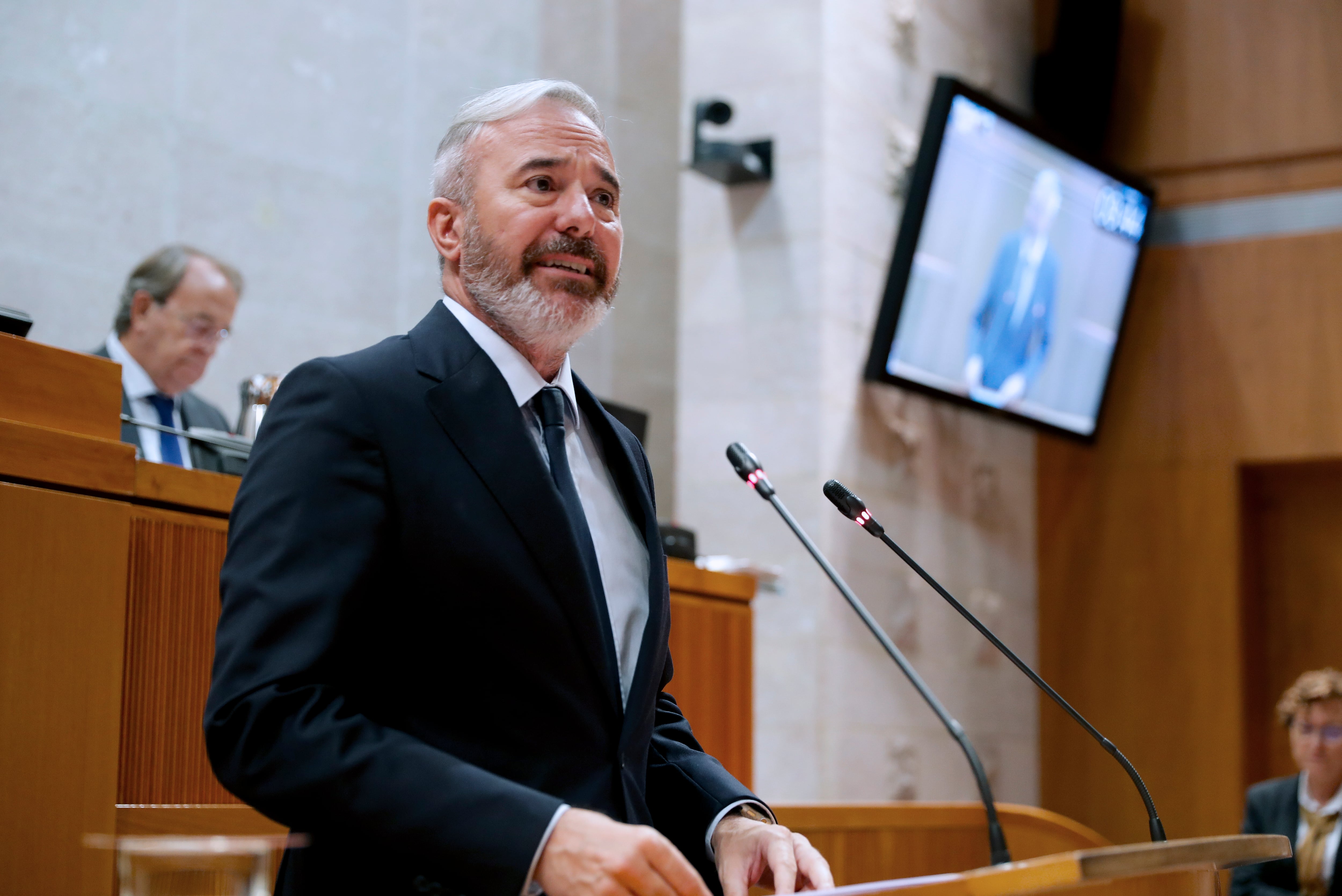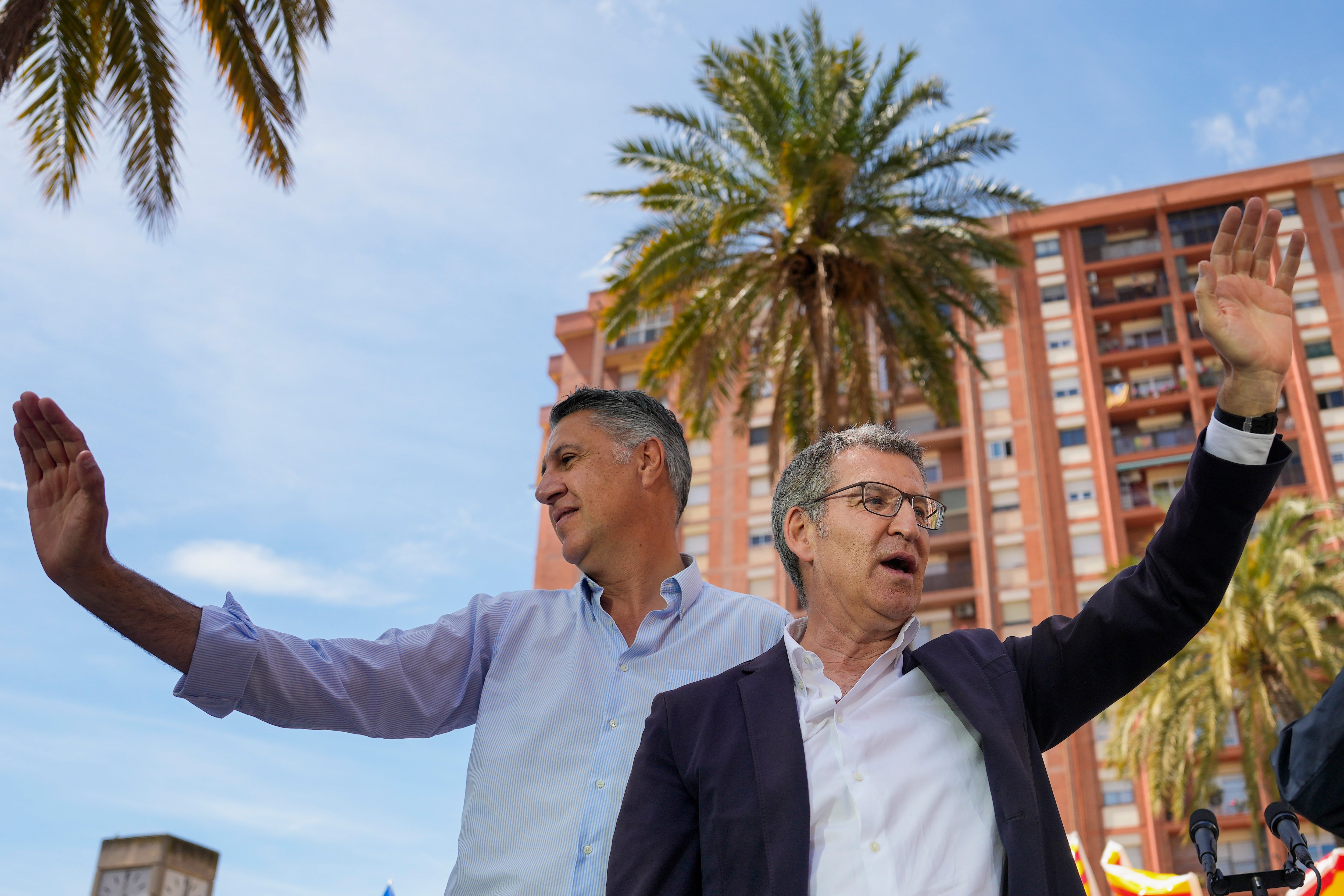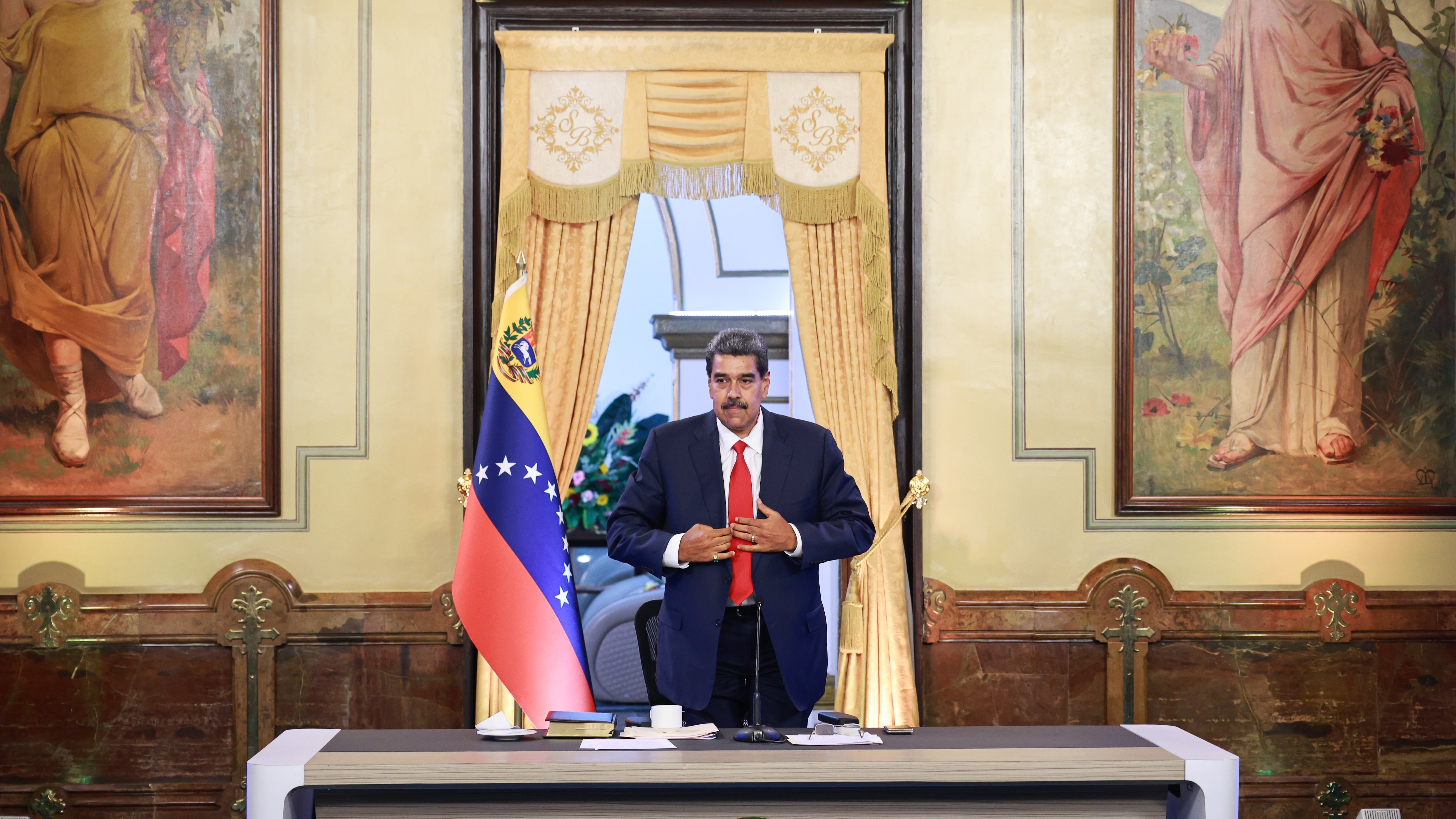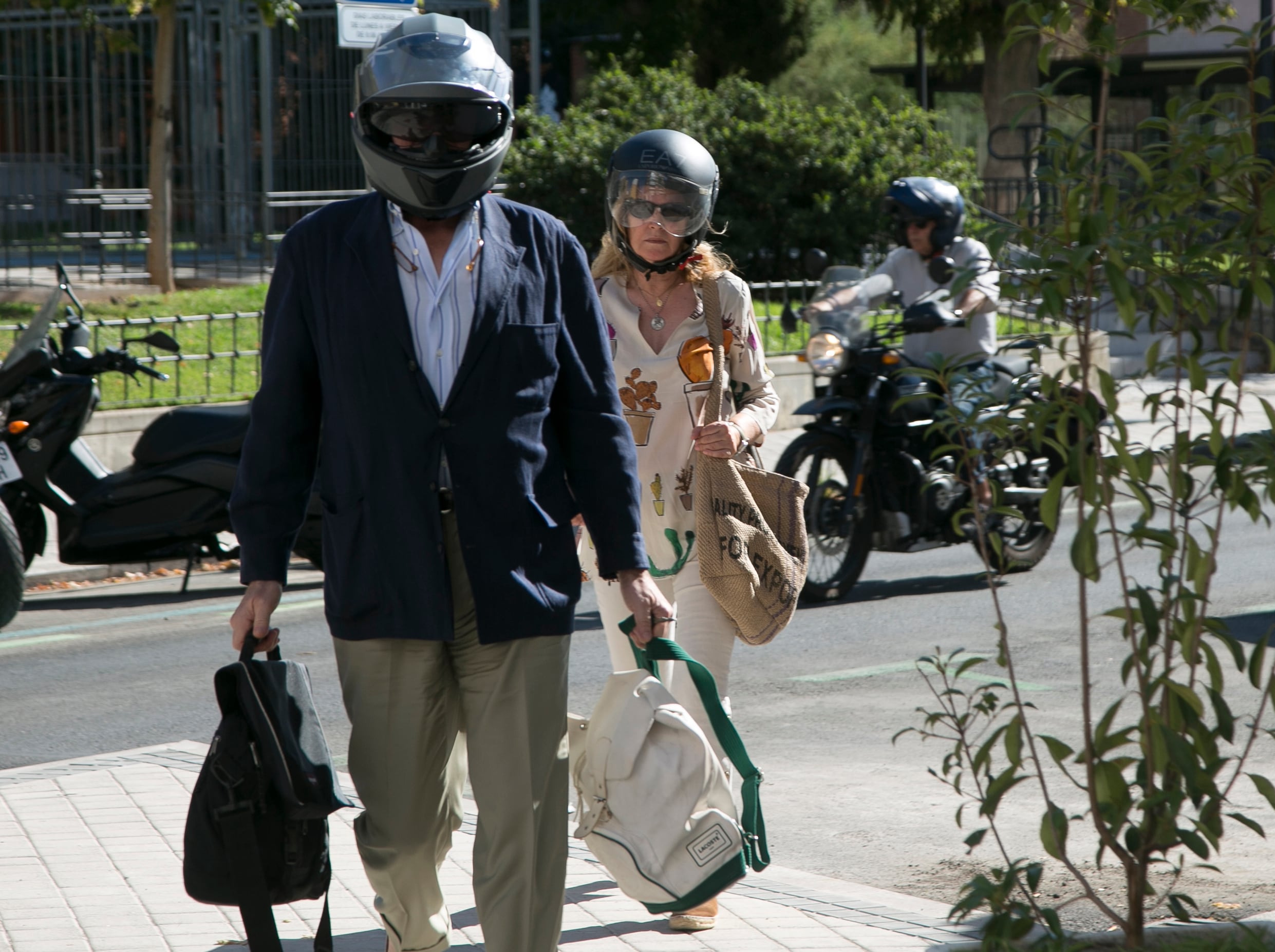Adam Met may have just wrapped a tour with his brothers – with whom he formed the Billboard chart-topping indie pop band AJR – but he isn’t making a beeline for vacation time. Instead, the bass guitarist headed to Chicago, IL, for the 2024 Democratic National Convention to show his support for the party’s presidential nominee, Vice President Kamala Harris, and her running mate, Minnestoa Gov. Tim Walz.
Climate activism has been as passion of Met’s just as long as music has. In 2021, he earned his PhD in human rights law and sustainable development from the University of Birmingham, and two years prior he founded Planet Reimagined, a sustainability-minded think tank. Though most wouldn’t consider climate activism and music to be analogous interests, Met has made it his mission to not just work in both arenas, but also illustrate where they crossover. Not only is he a globe-trotting rock star, he’s also an adjunct professor at Columbia University where he teaches about climate policy and campaigning.
AJR’s Maybe Man Tour – launched in support of their fifth studio album, 2023’s The Maybe Man, which peaked at No. 28 on the Billboard 200 – took the trio to arenas across the country, allowing them to implement new initiatives to secure heightened political engagement from their fanbase. In addition to having fans register to vote and sign petitions, the band and their partners also provided concertgoers with a prewritten script to recite on calls urging their Congressperson to vote certain ways on local climate issues.
“We designed it differently for every single city that we went to,” explains Met. “Phoenix was about asking FEMA to designate extreme heat as an emergency. We did something around the Great Salt Lake when we were in Salt Lake City; we did things around forest fires in California. We’ve found that people are much more willing to engage at the concert — and then again after the concert — if it’s something that affects them and their community. It’s a mix between responsibility and giving the fans an opportunity.”
From record-breaking hurricanes to extreme heat waves, the impact of climate change can be felt across industries. In the wake of Hurricane Beryl, AJR had to cancel a Houston show, because of the devastating intersection of feeble infrastructure — “We couldn’t get in touch with people to figure out food, power, etc.” — and climate change-induced shifts in weather patterns. With the 2024 presidential election just 11 weeks away, Met remains steadfast in his commitment to climate activism. Prior to the DNC, Met was one of many speakers on a Harris Climate Campaign Zoom call that included former secretary of state John Kerry, actress Jane Fonda and TV scientist Bill Nye.
Billboard caught up with Met ahead of the second night of the 2024 Democratic National Convention to chat about what most excites him about the Harris-Walz ticket, the music industry’s role in climate activism and a potential deluxe version of The Maybe Man.
What specifically are you most excited about in terms of climate and the Harris-Walz ticket?
I’m excited for the Harris-Walz ticket to continue the progress that we’ve already made on climate. I’m excited to see more movement in that direction, and we’ve seen so much investment in new technologies, new types of infrastructure, electric car charging, and moving towards solar and wind that are going to be more sustainable. That’s great, but we’re still maybe 25% of the way to the place that we need to get to.
I do work with the Department of Energy and the EPA and the Department of the Interior; those three are the trifecta where I feel like we can make the rules a lot stronger. Government is the best place where we can hold the private sector accountable, and I think that I want to see more of that in this next administration. We need to hold the private sector accountable for their emissions and for transitioning their businesses [away from oil and gas].
What was your experience in gathering bipartisan support for your plan to streamline the permits needed for new wind and solar projects?
This all started as I was working on the Inflation Reduction Act, which was the largest investment in climate in the United States.
My PhD was focused on making sure that we can have indigenous communities own renewable energy projects that are being built because as we’re moving in this transition, we want to make sure that environmental justice is key. I looked at communities in Kenya, Bangladesh, and Canada, and I developed this proposal for how we can allow these communities to own pieces of the projects to help them build out their community via new infrastructure, etc. I sat down with Republicans and Democrats, and actually ended up finding a lot of common ground between the two, which was really surprising, especially for something that was so focused on climate.
Eventually the Inflation Reduction Act passed without any Republican support, but I didn’t want that to be the end of the line. I took all of the information home back to my nonprofit, Planet Reimagined. We had a bunch of researchers and advocates work together to figure how we can fix the permitting process to allow new solar and wind to exist on top of oil and gas so we won’t disturb any additional land for wind and solar and we can help oil and gas companies transition their business to wind and solar. Democrats loved it because it’s increasing renewables and it’s moving away from oil and gas. Republicans loved it because it’s creating new jobs, it’s boosting the economy in their district and it is directly engaging with the oil and gas companies as opposed to saying we need to end all oil and gas tomorrow. I firmly agree that we need to end all oil and gas as soon as possible. But from an economic and realist perspective, there are hundreds of thousands of people around the world who are employed by industries that are directly built on oil and gas. We need to look at it as a systemic approach, so that’s how we developed this strategy.
What do you think about artists producing an exorbitant number of album variants and the impact that may have on the environment?
There are a lot of different pieces in the music industry that contribute to the impact of climate. My philosophy on this is that the music industry should be early adopters to new technologies, but the music industry is not set up to develop these new technologies.
When we’re on tour, everyone uses semi-trucks, tour buses, etc. We should be the earliest adopters in electric trucking [and] electric buses. Music industry shouldn’t be the people that are working on creating those because there are people who are way more [knowledgeable] in those fields. In production, like you were talking about, there are all of these different polymers that are being developed right now in labs that are the same material as vinyl. The music industry should absolutely be the earliest adopters of [that].
It’s about investing in the tech, so the tech gets to a place where we can implement it as fast as possible.
Outside of the polymers, what other kinds of tech do you think can be integrated sooner rather than later?
A huge part of the income of venues is food and beverage. There are new ways of thinking about how agriculture can be farmed and produced locally under different kinds of conditions, and genetically modified things that can work in different markets. Once the music industry is buying as local as possible, [it] proves to the larger market that these things are not scary. These things are actually feasible.
Merchandise, too, is a huge area in the music industry and we’ve already seen a lot of artists specifically choose to work with companies that are not doing fast fashion. The music industry taking a stand and saying we’re going to go for something that is going to be long lasting. You might have to pay a tiny bit more for [it], but it is significantly better for the environment.
What kinds of stands did AJR take on its most recent tour?
We did a partnership with an organization called Reverb. They “green” the backstage area, meaning that any leftover food is donated to local organizations. We have water stations everywhere and everyone on our crew has reusable bottles. There are probably 30 or 40 different actions that happen both backstage and in front of house to make sure that our crew is being as sustainable as possible, and that when the fans come in, they are getting a sustainable experience.
Is there a way these practices can become standardized across the touring and live music industries?
That’s the goal. Reverb works with a lot of artists, from Harry Styles to Billie Eilish to Dave Matthews Band. However, the goal here is for these to be the norm in every venue. No artist should have to ask the venue, “I want to make sure there’s no single-use plastic cups being used to serve drinks to fans.” That should just be the standard. We’re seeing that implemented at some of these venues that we go to where they have [initiatives like] waste programs.
But the problem is, we are a little bit of time away from that being implemented everywhere on the “greening of the venue” side. I would say we need to expand those initiatives to as many venues as possible. So many artists, especially at the club level, don’t have the capacity to be thinking about these things.
What’s stopping this from being standard across the A-list tier of touring musicians?
Education is the first [roadblock]. Many crews, tour managers and production managers don’t understand that this is relatively easy to implement. For some people, it’s cost. You generally need to bring one to two people on the road with you, and when you’re at a club level and you have a tour manager who’s also front of house, who’s also selling merch, it’s adding another job. That’s why having it built into the venue itself is gonna solve a lot of these problems with the cost barrier and the education barrier.
What does Planet Reimagined have planned as the election draws nearer?
With the election coming up, a lot of what I do personally outside my capacity as executive director of Planet Reimagined is going to schools and help people think about how whatever they’re doing in school is connected to climate. Climate is an everyone issue and is an everything issue. On the medical side, obviously more and more people are dying from extreme heat, but the more complex example is that as temperatures increase as we get farther and farther away from the equator, we are creating more space for insects that are carrying certain diseases. It creates a whole new kind of health system to look at. We’re talking about immigration, there is going to be the largest change in where people are living over the next two decades due to the effects of climate change
This is the most important climate election ever. I fully believe that there are people across the political spectrum who all are on the side of climate. My call to action for most young people is: when they’re going to the voting booth, take 10 or 15 minutes, look up people’s climate voting record — because it might surprise you how many people across the political spectrum are actually voting with climate change interests in mind.
I recently spent some time in Grenada, which was hit really hard by Hurricane Beryl recently. Hurricanes that strong arriving so early in the season are a direct result of climate change. How can artists from nations with larger infrastructure support artists in the Global South, especially since they’ll feel the worst impacts of climate change earlier than anyone else?
The countries that are now feeling and going to feel the worst impacts of climate change are the ones that are least responsible for it. It’s a massive problem. There have been so many promises from industrialized countries and it’s just not happening.
The voice of musicians is so unbelievably powerful. A lot of musicians write their own music, and the audience knows who the musician is because they’re writing their own music. When their voice is consistent with the thing that they care about, you’re much more likely to move people. I’ve seen more and more musicians take on this role of advocate [in Washington and the private sector].
Change can happen, but it’s only when artists are holding people’s feet to the fire. It’s all going to take musicians banding together, trying to hold the for-profit and the government’s feet to the fire to make sure we’re making the right investment in order to prevent these horrible effects.
When you look at Harris and Walz, what song comes to mind?
I don’t want to be cheesy and name any of the trending songs that are associated with the campaign. [Laughs.] For some reason, I was listening to “Saturday in the Park” by Chicago and it just feels like the right song right now.
What do you think about the campaign’s embrace of Top 40 music this election cycle?
The Harris-Walz campaign is doing an amazing job of embracing pop culture in a way that we haven’t seen before, whether that’s through music or specific sound bites or social media platforms. I think meeting people where they’re at is an important thing, but my philosophy on that is that we need to meet people five steps ahead of where they are, in order to get them there. With the joy that we’re seeing from this campaign, we met people five steps ahead of where they are, and brought them to that joy.
If you were running for president, what would be your campaign song?
“Rainbow Connection” [from The Muppet Movie] — because it’s real, it’s emotional, and it’s also inspirational.
What does AJR have planned next?
We are going to be doing a bunch of festivals over the next year, and we are working on some new music — potentially for a deluxe version of this album!



























